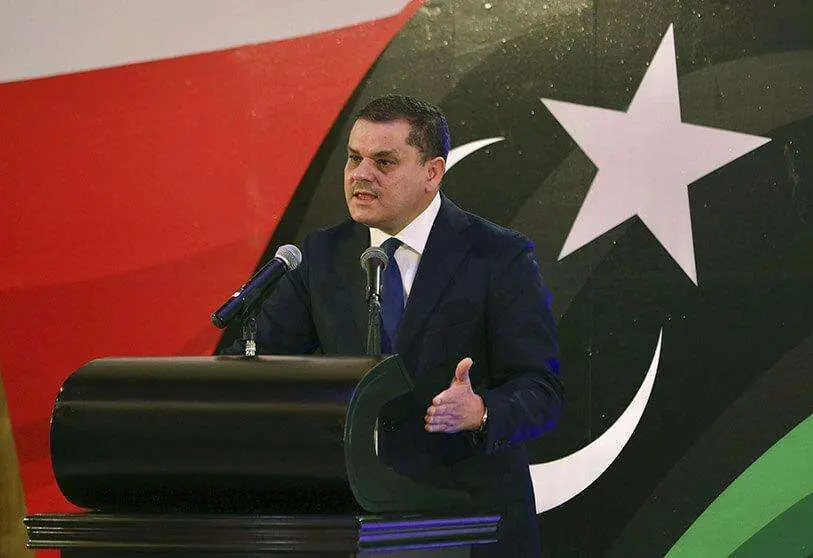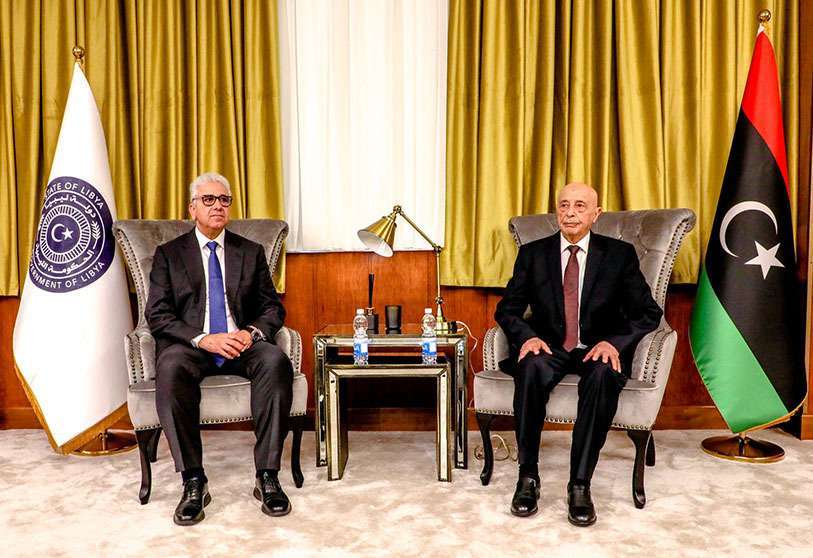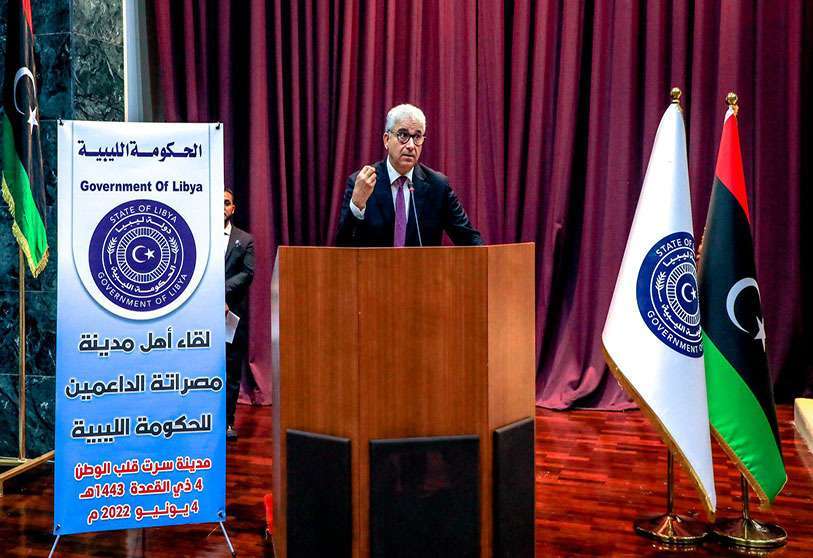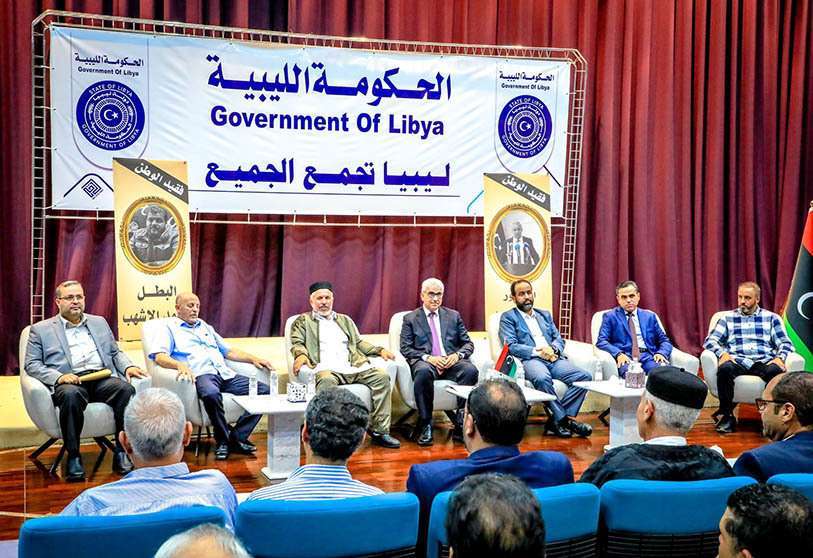Libya is once again on the brink of the abyss

Libya is staring into the abyss a year after the unknown Misrata businessman Abdul Hamid Dbeibé landed at the head of the government. Appointed by the Libyan Political Dialogue Forum (LDPF) after a ceasefire and months of intense UN negotiations, the interim prime minister came to power with a mission to hold general elections before the end of 2021 to put the transition on track. But the inability to establish his authority led to a new institutional fracture.
Dbeibé warned this week of a possible new civil war in Libya like the one the country experienced in 2014, three years after the overthrow of eccentric dictator Muammar Gaddafi as part of the Arab Spring. The emergence of a new parallel administration in the east, headed by the former interior minister of the UN-sponsored 2015 Government of National Accord (GNA), Fathi Bashaga, challenges the control of an increasingly contested incumbent prime minister.
Dbeibé instead demanded opening a new national dialogue process to set a consensual roadmap for holding the elections, tentatively scheduled for the end of 2021. "We need to sit down and discuss a constitutional basis for consensus that will lead to real elections this time," the unity prime minister said. "We cannot be part of a new war between Libyans. No more wars," he said in the face of growing institutional polarisation.

On this occasion, Dbeibé has presented a firm proposal, a timetable with fixed deadlines, to guide the electoral process.
The Prime Minister's move follows recent statements by the Speaker of the House of Representatives, Aguila Salé, who highlighted the control of the capital, Tripoli, by pro-Dbeibé militias. According to Salé, the only way to enter the city is to receive permission from the armed groups or, failing that, to start a conflict. A few weeks ago, Bashaga was forced to leave the city, provoking an outbreak of violence between militias.
The eastern parliament, chaired by Salé, terminated Dbeibé's mandate for failing to honour his election pledge and elected Bashaga as the new prime minister in February, despite having signed an agreement just a year earlier within the framework of the UN. Dbeibé, for his part, called the vote "illegitimate" and vowed to cling to power.
In this period, the Government of National Unity (GNU) has closed ranks with Dbeibé, who made public a few weeks ago that he was considering holding legislative elections this June, preceded by the holding of a constitutional referendum necessary to define the country's new legal architecture. But the head of government has made no progress in this direction, exacerbating political tensions.

In the face of the appearance of weakness, Bashaga has been taking firm steps in the midst of a fuel crisis caused by instability in the energy sector, a supply shortage that is occurring in an oil-rich country. In this sense, the prime minister of the parallel executive tried last week with Aguila Salé to stage his authority in Sirte - Gaddafi's home region, the same city where he was assassinated by insurgents - now overrun by Wagner Group mercenaries.
"Tripoli is the capital of Libya and no government can work from other cities. We reject Sirte as the seat of government, as it is insecure and impartial due to the presence of the Wagner Group. We fear war and do not believe that Fathi Bashagha's government will stay in Sirte for long. The solution lies in addressing the stalemate because the fighting remains a threat," said the chairman of Libya's Higher Council of State and acting head of state, Khalid Almishri.
However, Bashaga has not been able to establish his control in the capital, nor has he been recognised by the international community. Yet his defiance has succeeded in restoring the country to the administrative duality that prevailed during the fratricidal struggle.

In the face of the appearance of weakness, Bashaga has been taking firm steps in the midst of a fuel crisis caused by instability in the energy sector, a supply shortage that is occurring in an oil-rich country. In this sense, the prime minister of the parallel executive tried last week with Aguila Salé to stage his authority in Sirte - Gaddafi's home region, the same city where he was assassinated by insurgents - now overrun by Wagner Group mercenaries.
"Tripoli is the capital of Libya and no government can work from other cities. We reject Sirte as the seat of government, as it is insecure and impartial due to the presence of the Wagner Group. We fear war and do not believe that Fathi Bashagha's government will stay in Sirte for long. The solution lies in addressing the stalemate because the fighting remains a threat," said the chairman of Libya's Higher Council of State and acting head of state, Khalid Almishri.
However, Bashaga has not been able to establish his control in the capital, nor has he been recognised by the international community. Yet his defiance has succeeded in restoring the country to the administrative duality that prevailed during the fratricidal struggle.










